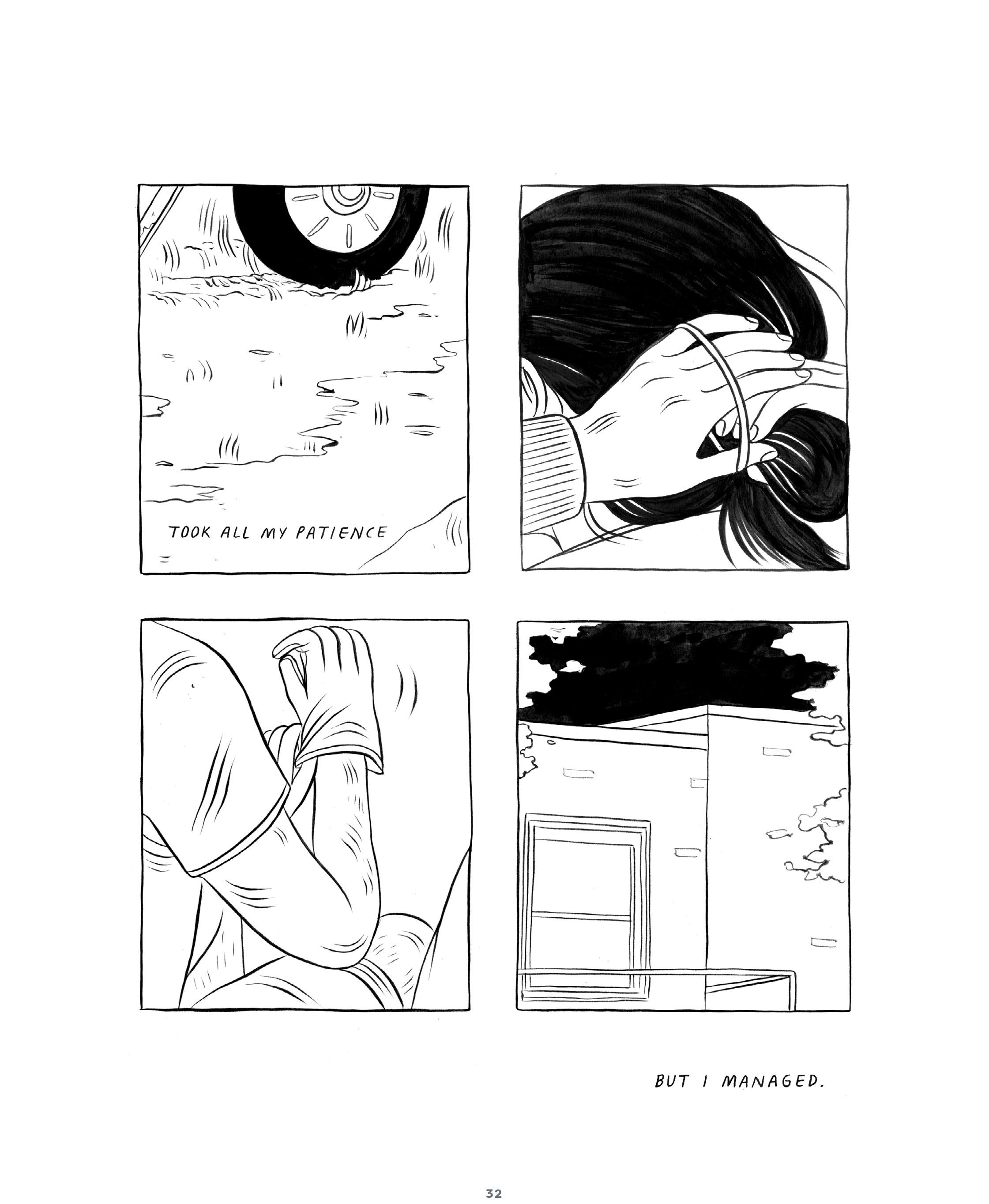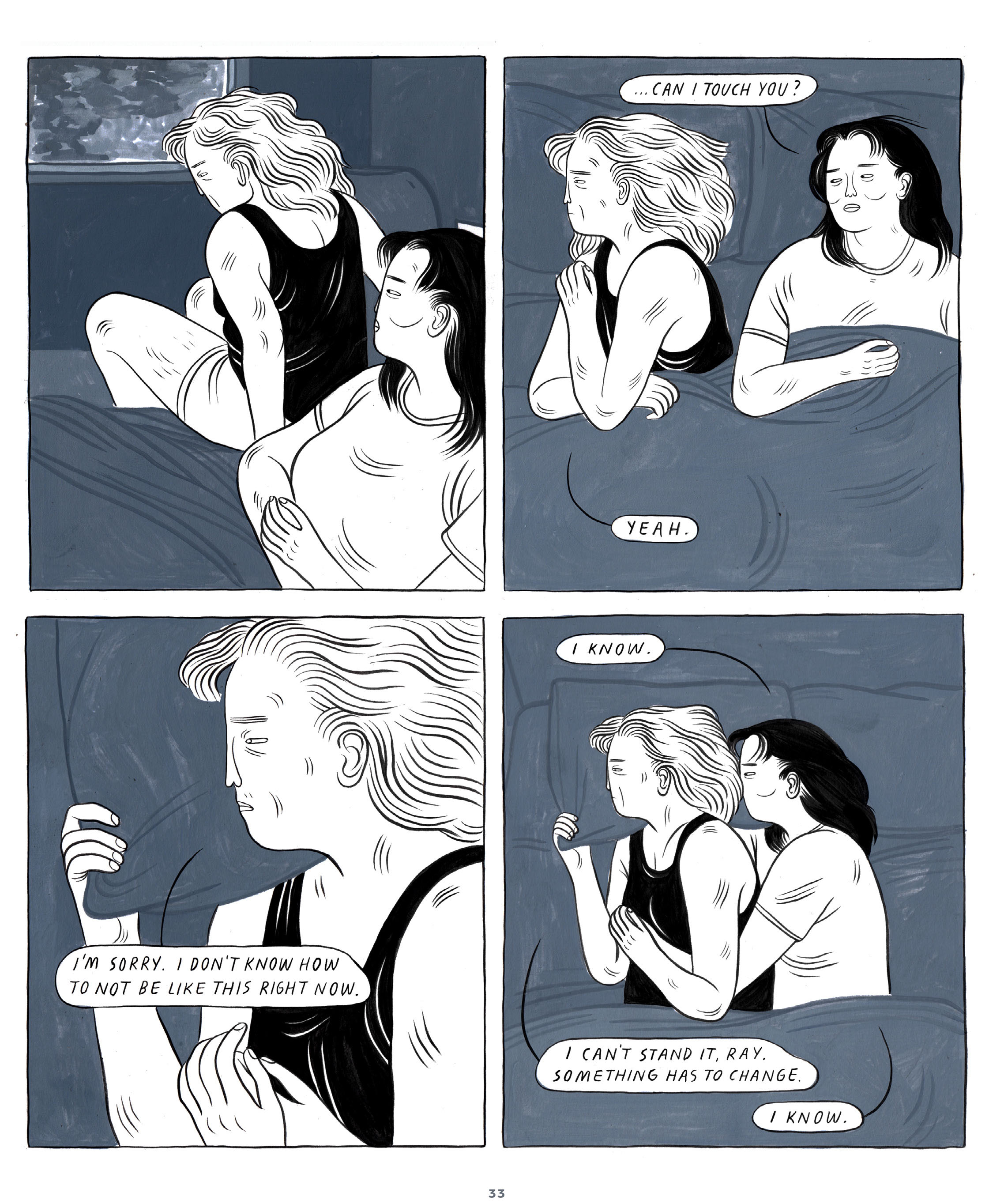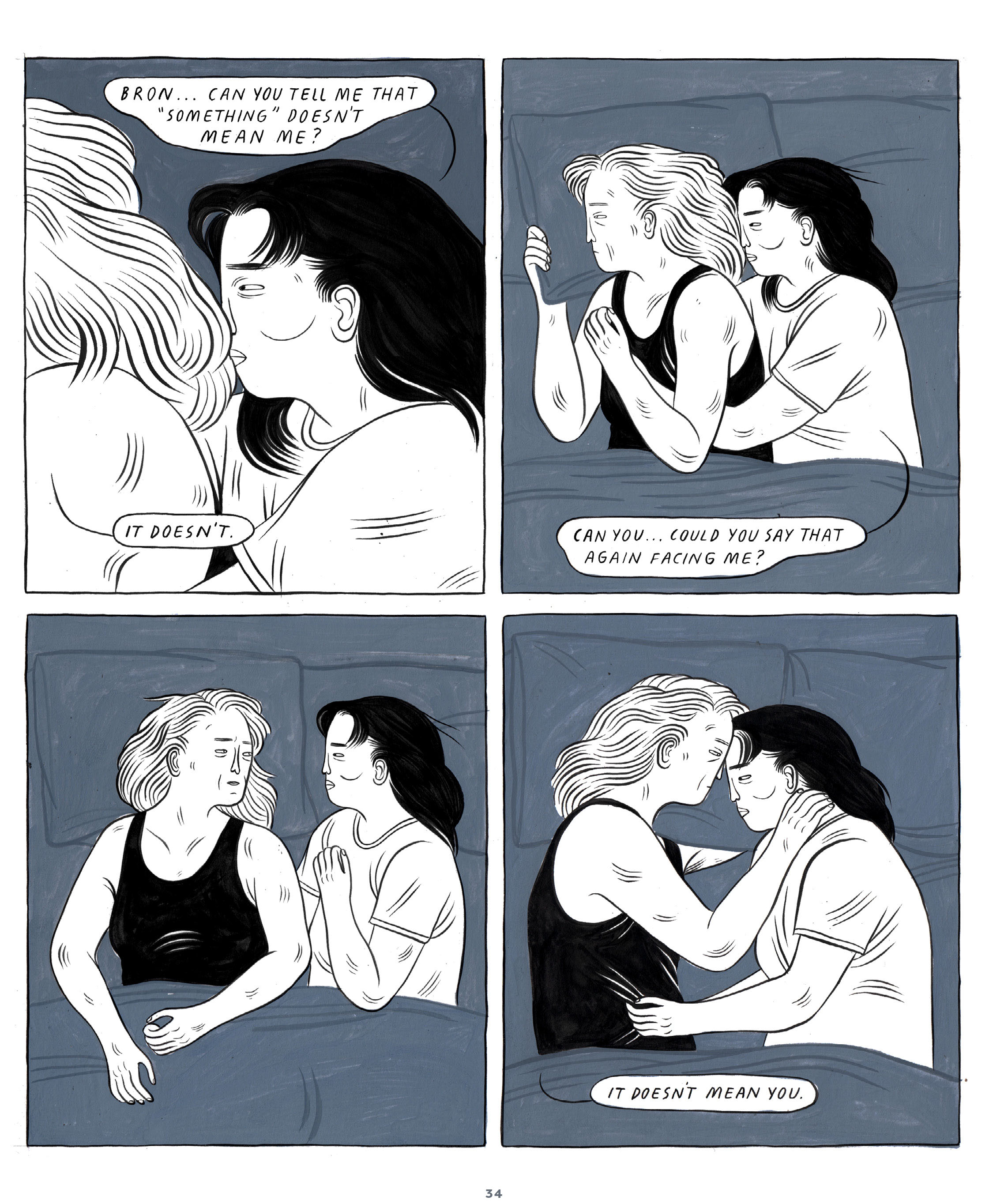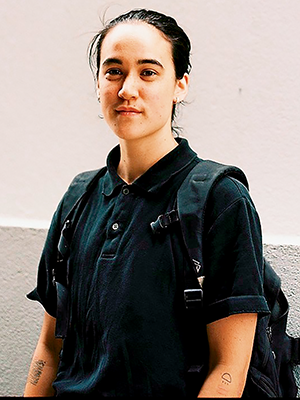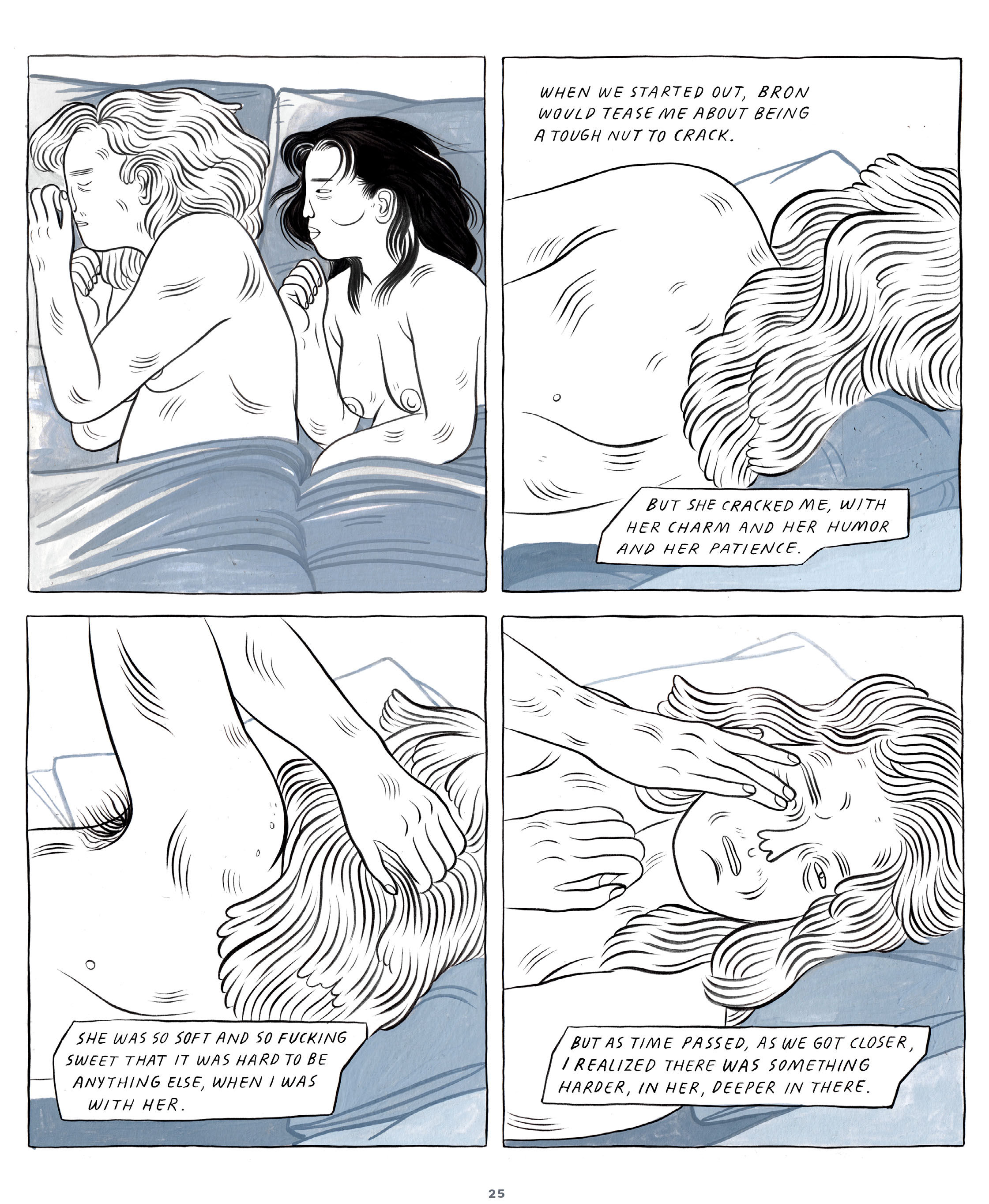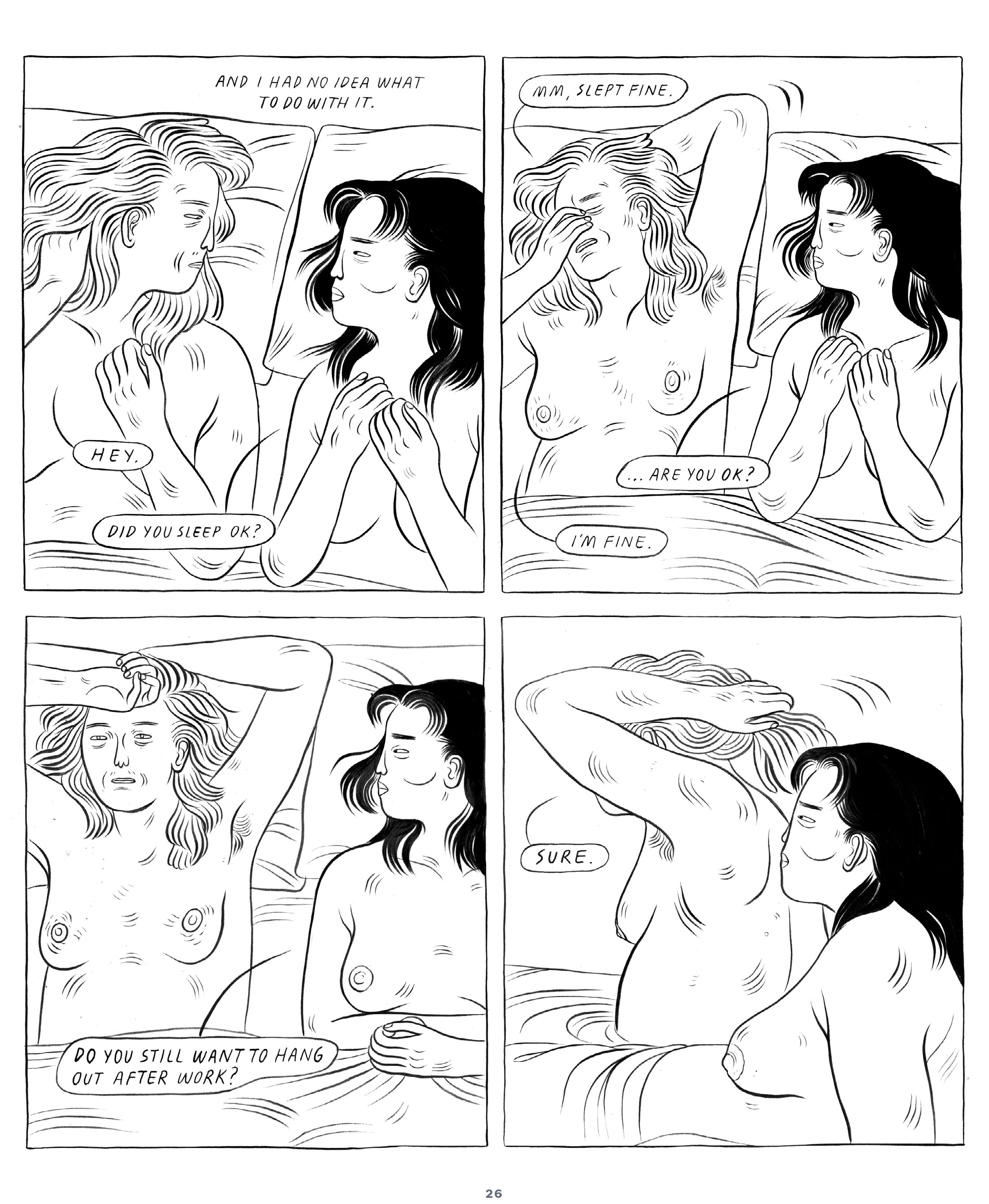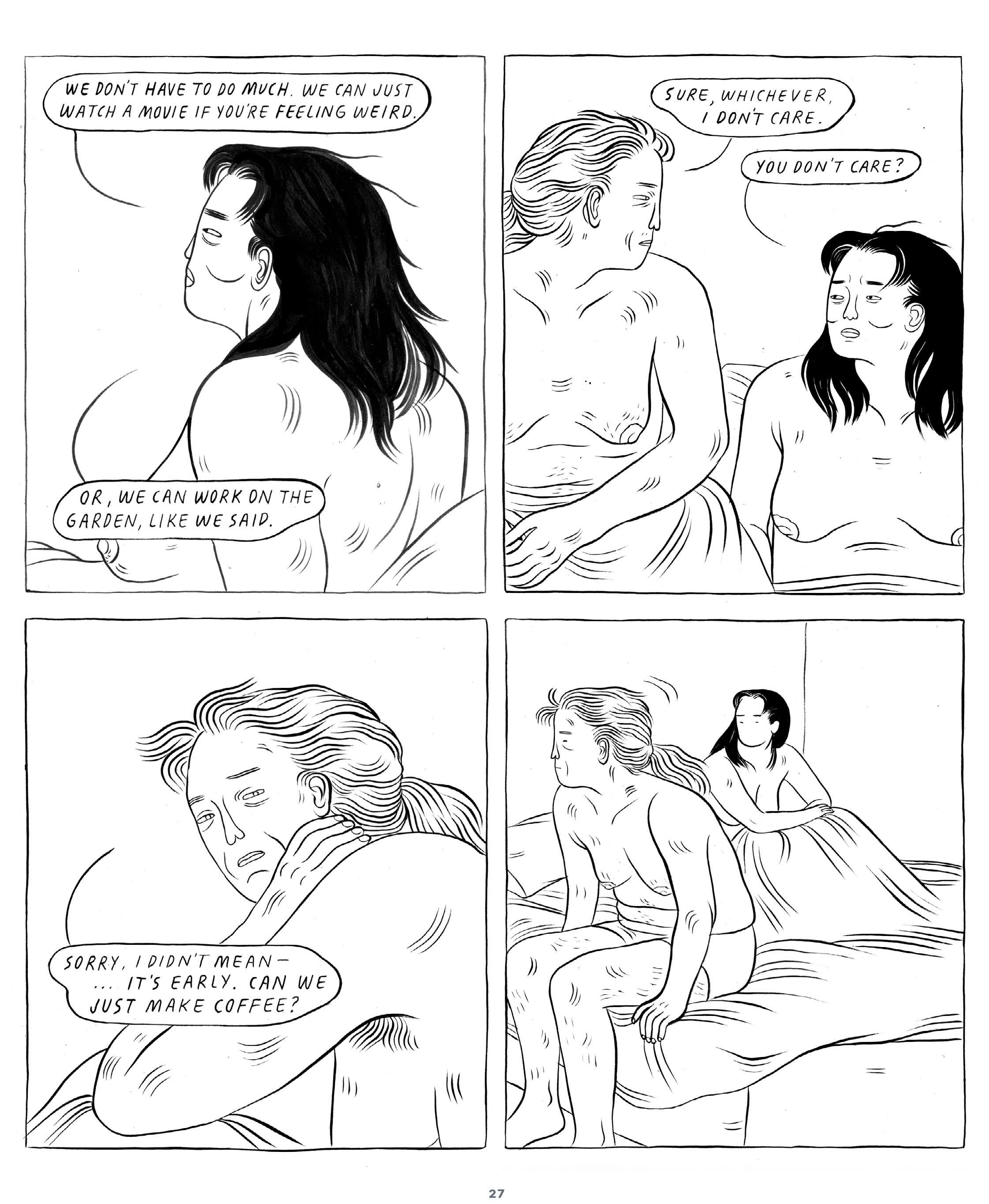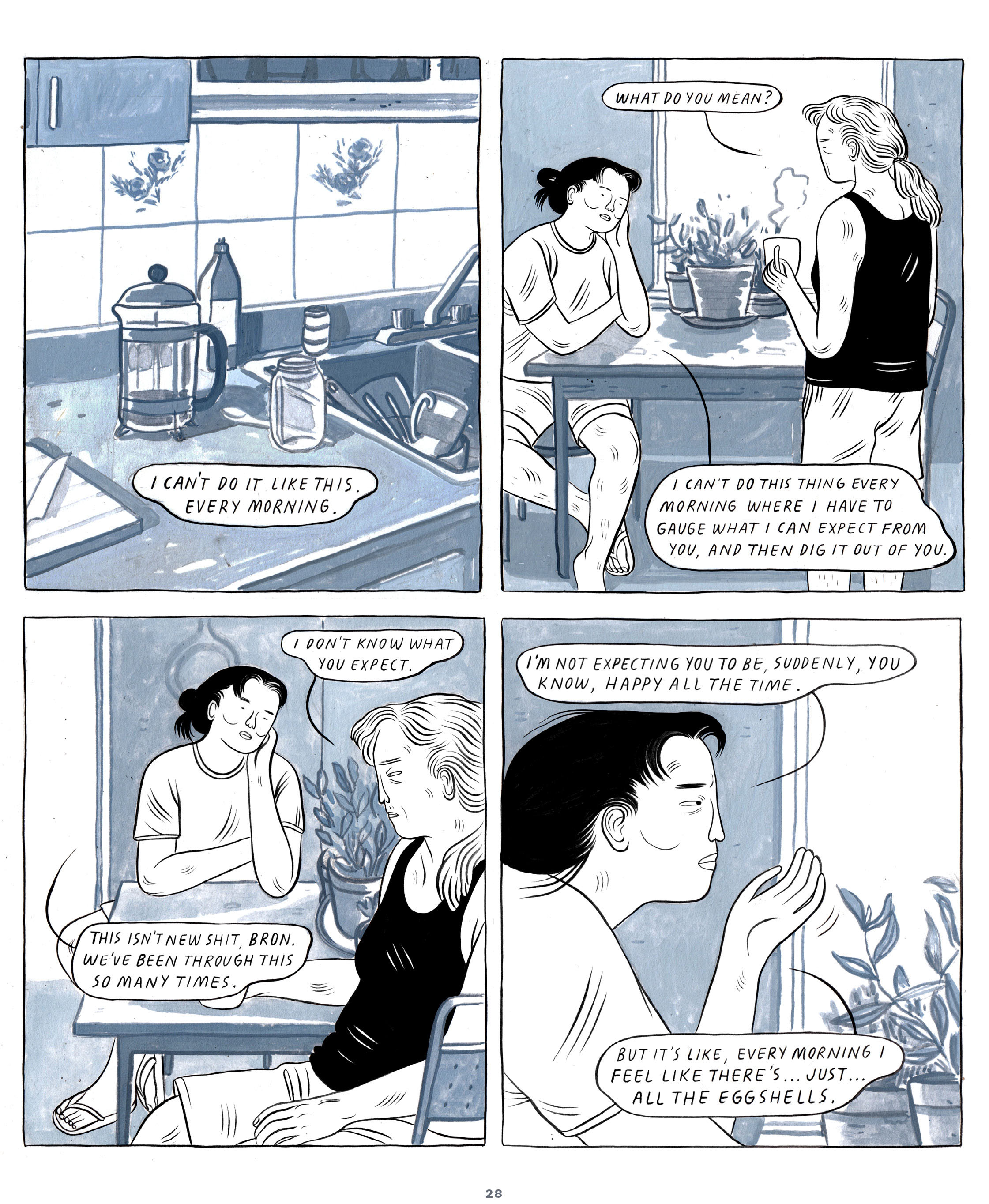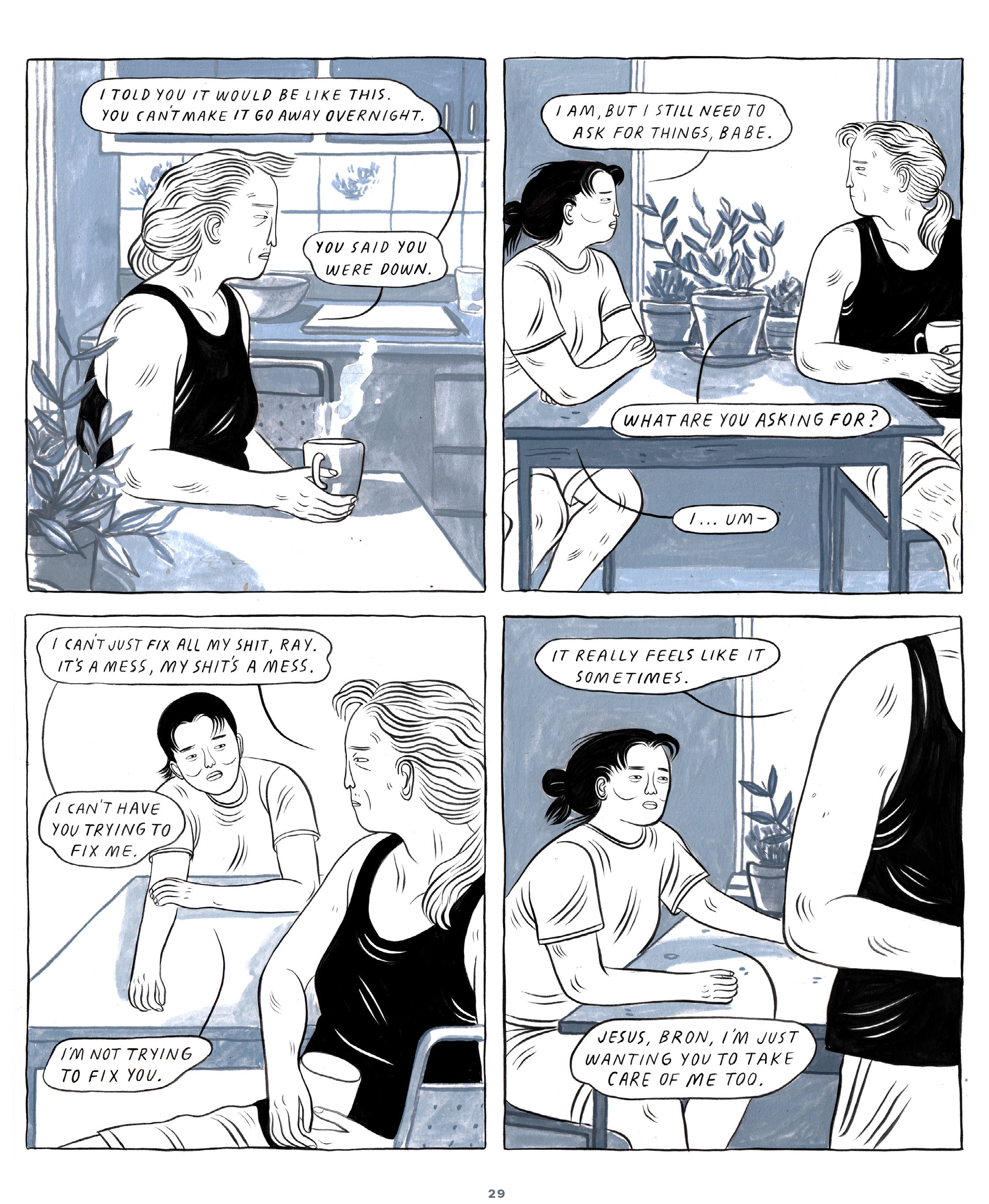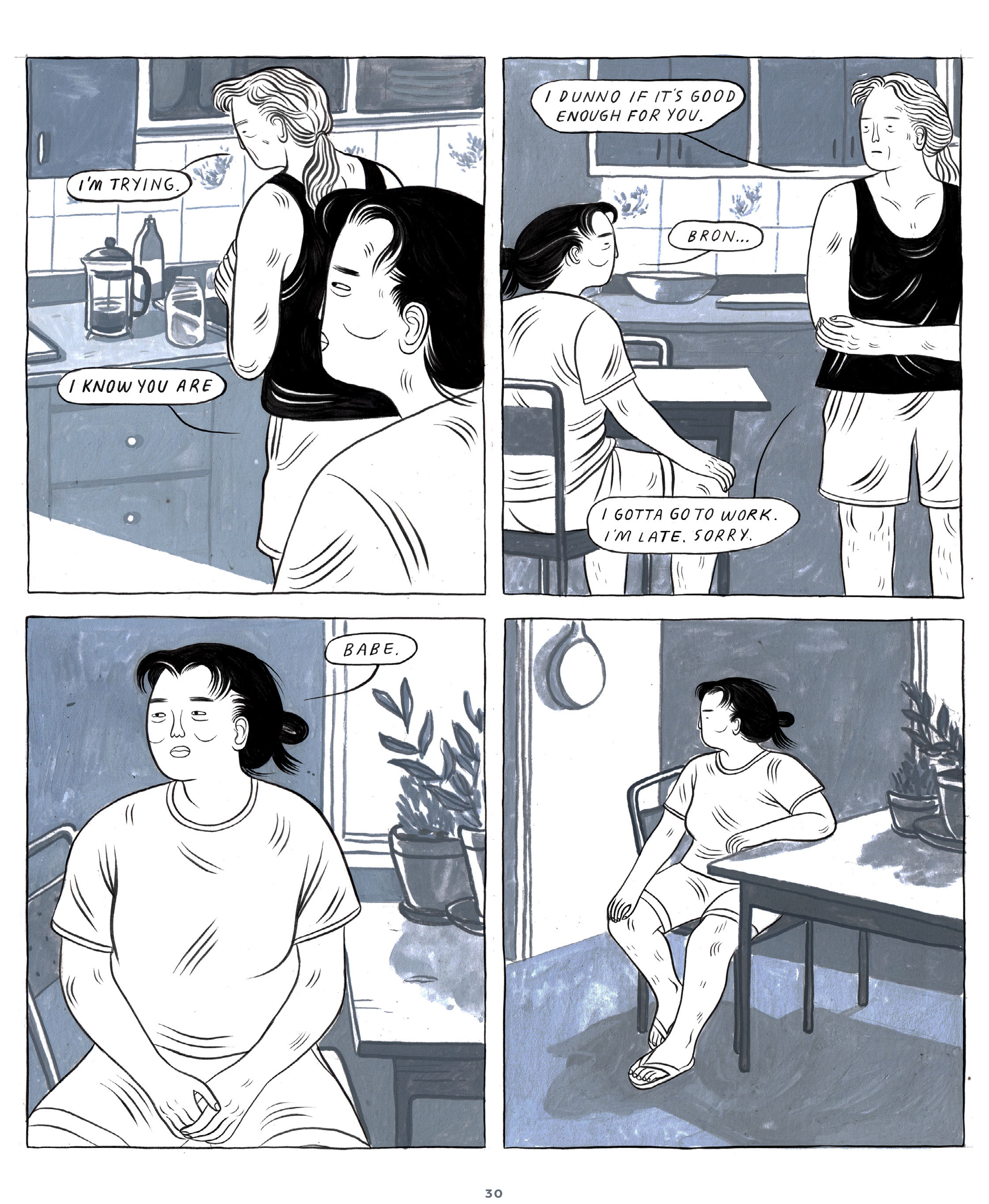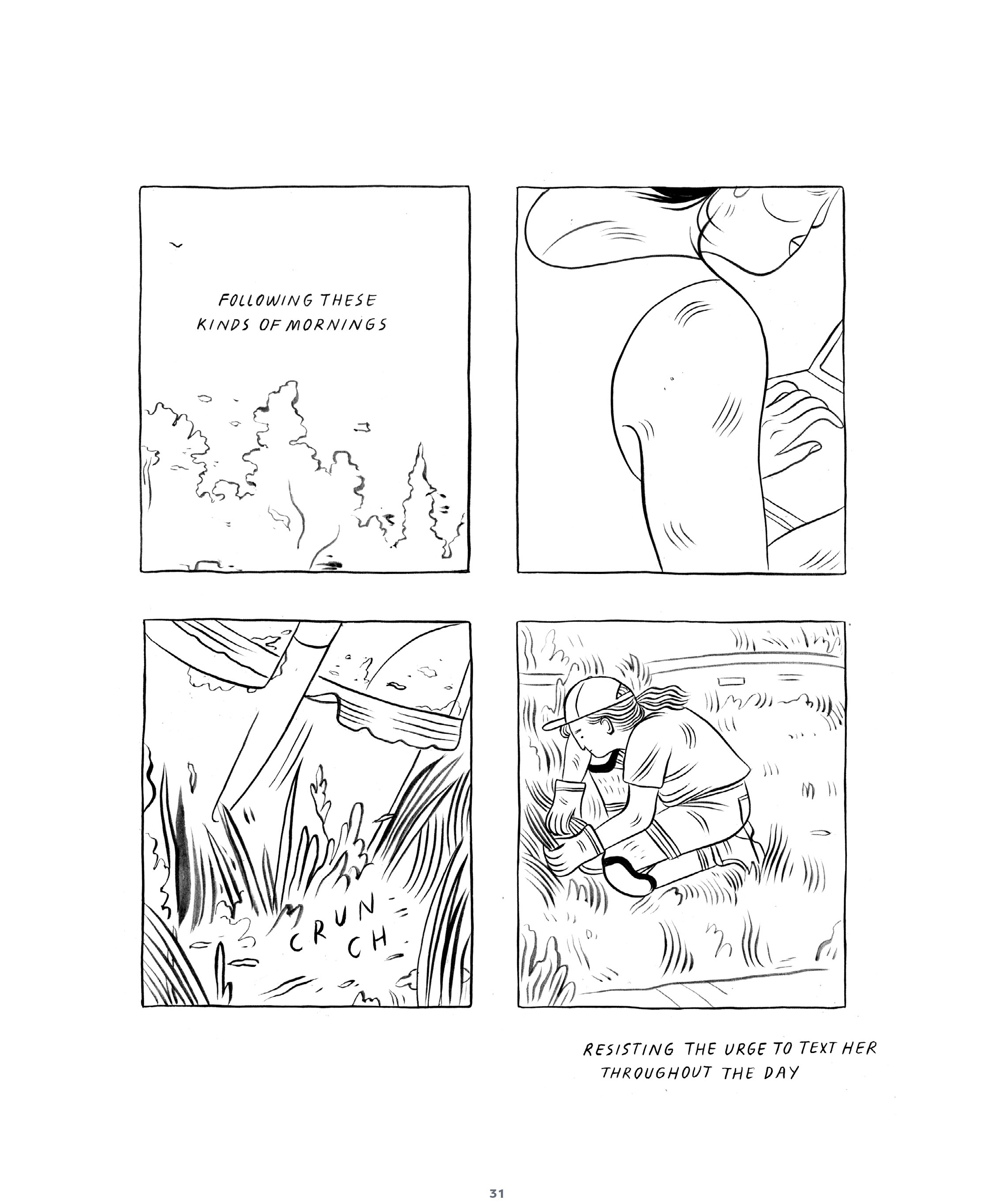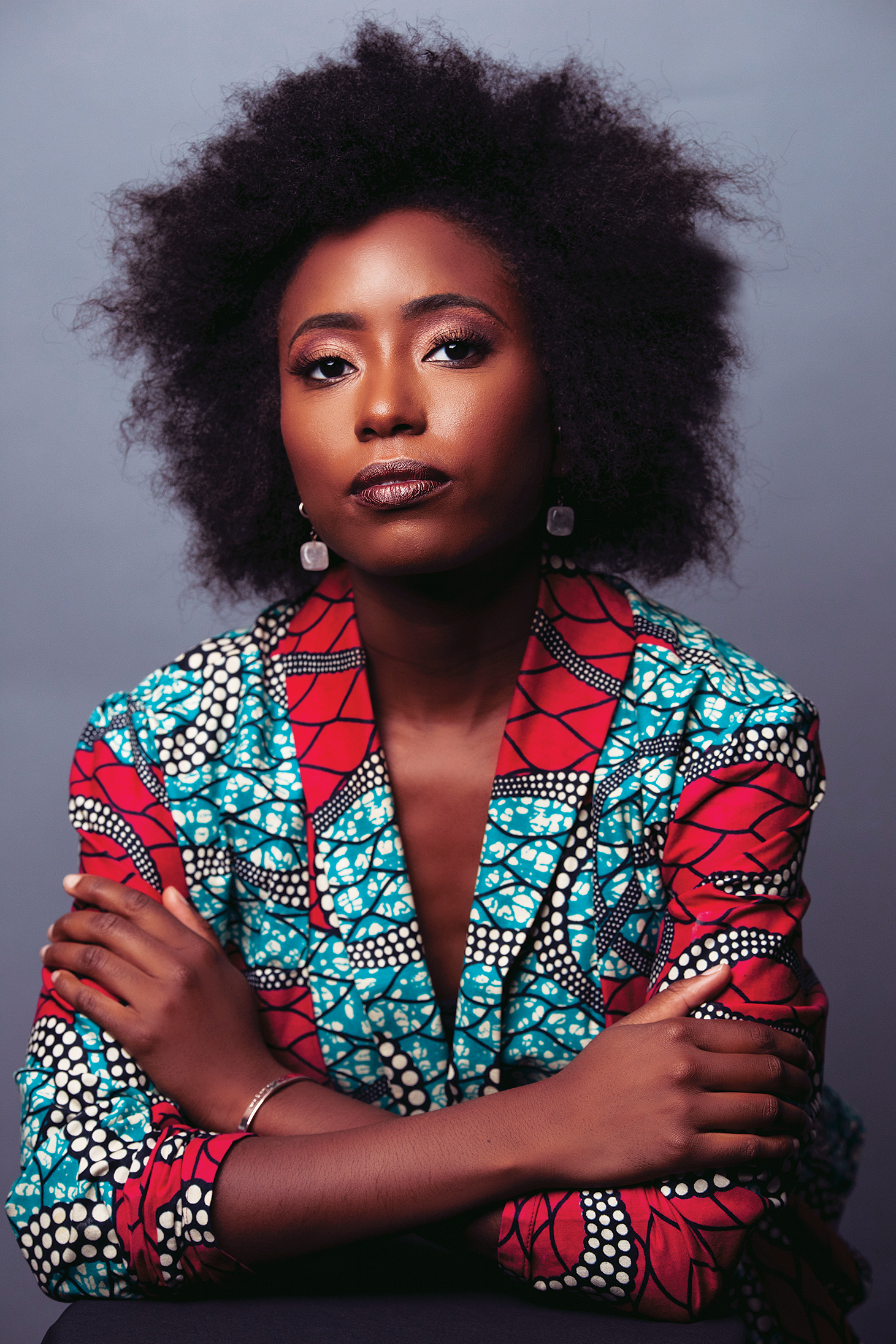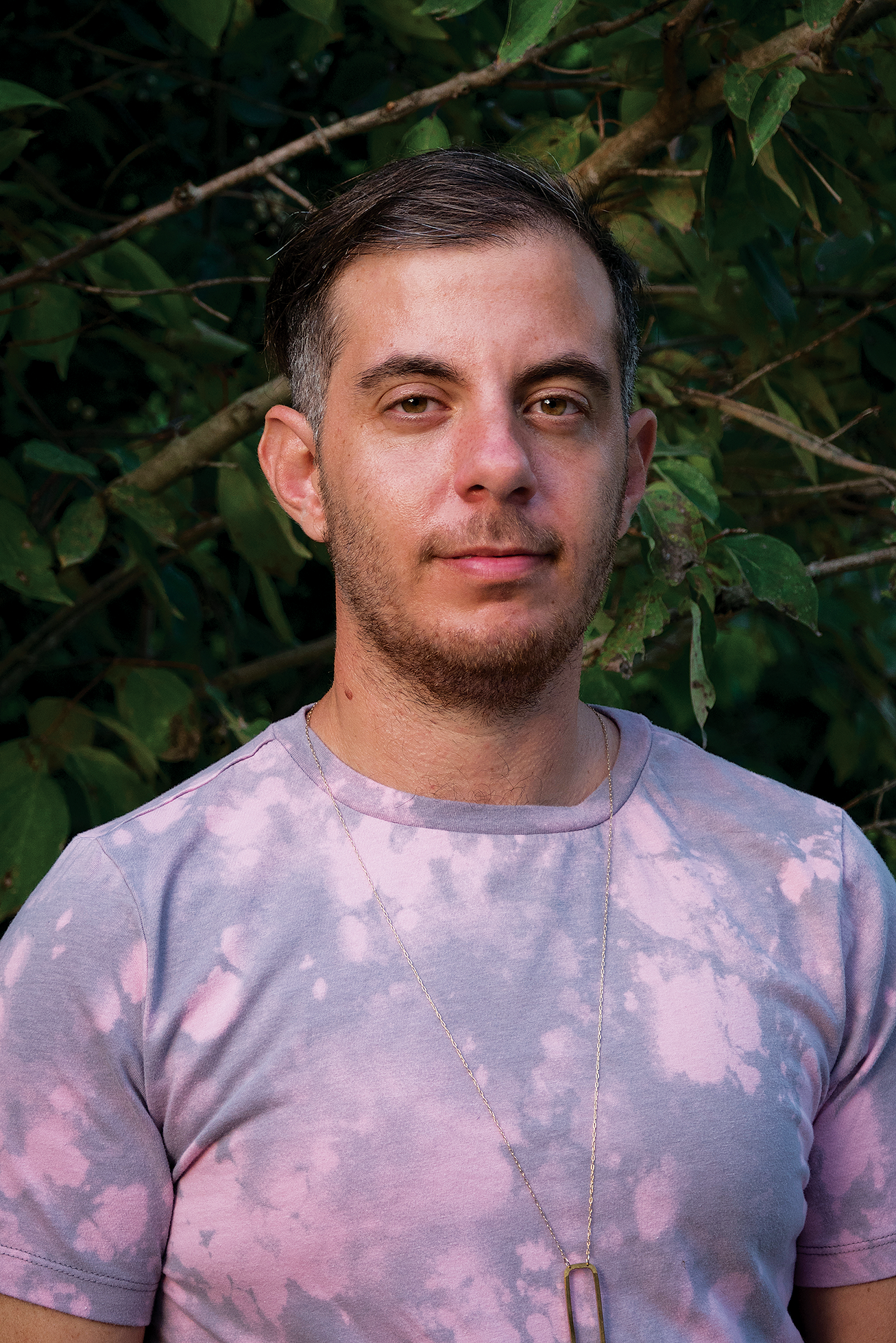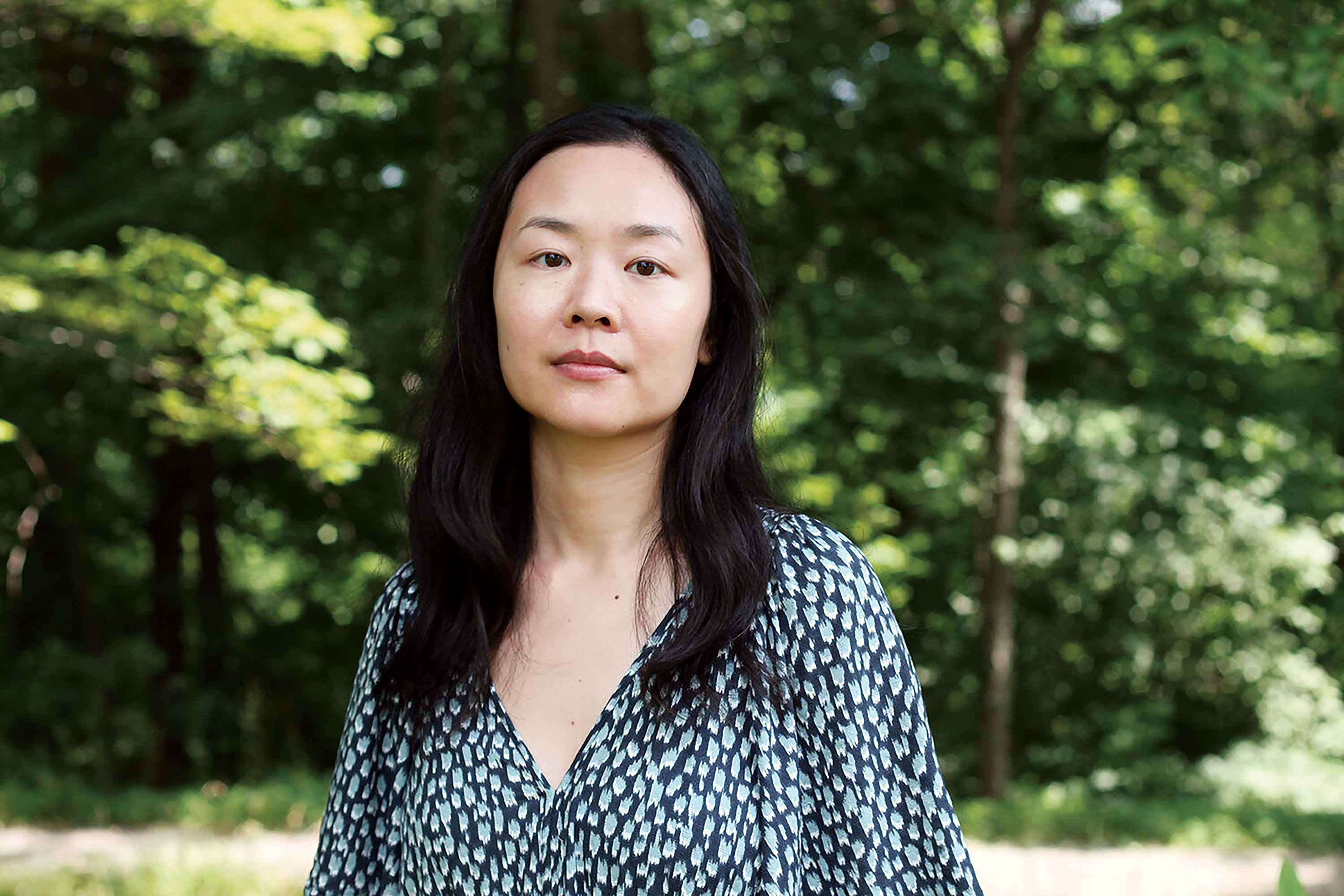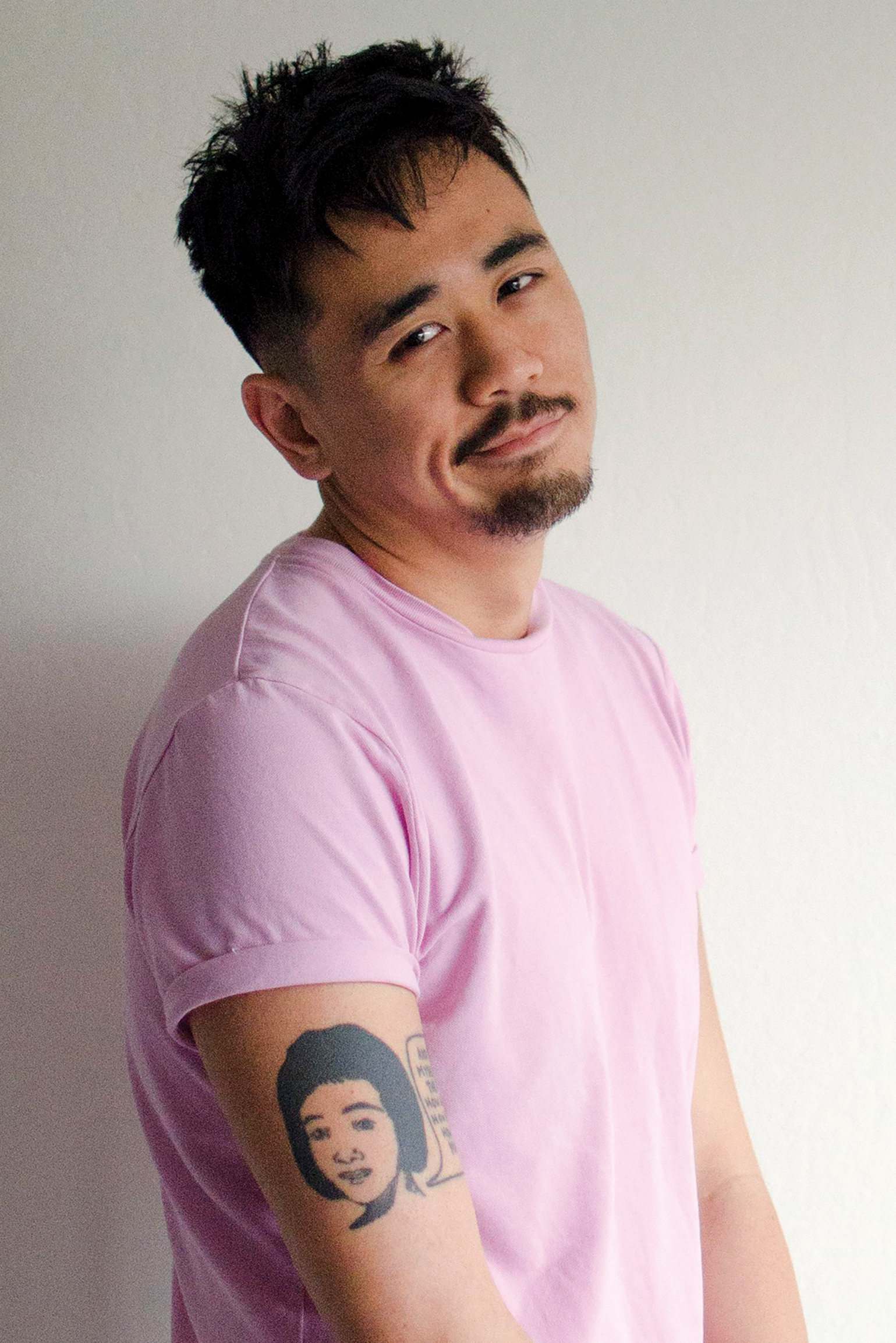Future Feeling
Joss Lake
I walked Oggie, Starburst, and Palm Tree together without incident. As Buford took a shit on someone’s lawn, a guy in a tank top came flying out the front door and screamed from the top of the stairs. I waved my poop bag at him like a flag, but he was still yelling in Polish, saying something along the lines of, “Make that dog shit in the street,” which was impossible.
I smiled and gave him a thumb’s up.
My first summer dog-walking, as Lola the Havanese was kicking up dirt to bury the poop that I had already picked up, a small stone hit a dude’s Mercedes. He had been washing the other side, and poked his head up to give an unbelievable monologue about how he had worked his way up from nothing to buy this car, how it was his baby, having no other family or close relations, and how denting it was analogous to stoning an infant.
Lola’s parents ended up paying him $500 to stop harassing me, and I realized just how little I could control in the world. Assholes (human and canine) aside, walking dogs helped me to recreate the suburban village I had grown up in. During restless Midwestern summers, as my friend Jillian and I would walk past people on the street, or, later, drive past their homes or the site of their DUIs, we would create a little map of our town, the divorces and the family secrets and the infamous soup party that went awry, the density of our stories vacillating between gossip and tales of biblical proportions. We never tired of embellishing the story about the high school science teachers who slept together in the chemistry closet and both developed lung problems. When we were thirsty for the epic, we’d say, “Remember when Mr. Redderick and Mrs. had sex in the chemistry storage closet?”
“And Mrs. kid Talon walked in?”
“And then he went to rehab and her husband blamed her?”
“And then she was sent to a sanatorium because she developed lung problems?”
“And then she fell in love with the janitor, who made minced pies for all the patients?”
“And then Mr. Redderick moved away to Alaska to study salmon hatcheries, but not before carving her name into the big oak tree by the football field, as if they had role-reversed with their students?”
From walking my dogs, I could tell which humans were making more money, or had broken up, or had a detoxing relative on their couch, or had decided to move back from whence they came.
I took Buford home, envying the fact that he had no clue about the screamer’s insults and the general pettiness of human emotion. I walked Harris. Back at his apartment, an airy Bushwick loft with huge, vacuumed rugs covering the paint-splattered wood, I sprawled out on the ground and Harris laid down next to me. I checked my phone.
The S-H had come through!
He’d sent me a link to a basic html page with photos of Aiden, some selfies and some taken by the plethora of cameras in every modern city, along with timestamps and map coordinates. The latest, from 6:02 p.m., was at 40°44’28.4”N 74°00’29.3”W, blurry Aiden in an elevator. I fumbled around trying to figure out how to read the coordinates and there it was, his hotel.
Once I possessed the key, I had to go through the door.
I patted Harris goodbye and he looked up at me over his long Italian greyhound nose, bemused.

I was dressed in my dog-walking joggers and T-shirt, conveying casual elegance. Two lions guarded the front of the Juniper Ash Hotel. I rubbed their heads for luck and stamina.
The lobby was strange because I’d been living in city subsistence mode, without extravagance or leisure. I did have a trust fund from the hoarding of my grandparents, but I never liked to use it with my future prospects still unknown. They passed on money, and they also passed on a belief in scarcity. In the city of hideous wealth, I was not rich at all. I simply had a cushion against despair; I could afford to take sick days from dog-walking and pay Sophie, who did not accept insurance.
Art collector moms in athleisure, tech bros wearing silver visors to easily identify each other, women in their flowing prairie-goth gowns, a famous pianist with his fingertips encased in silver regenerating pods: they all moved across the room in varying states of disregard for my gaze.
I ordered sparkling water with shrub and sipped slowly.
After an hour of trying to classify all the types of people who had the time and money to be trailing through a hotel lobby at 6 p.m. on a Wednesday, I saw the body I knew so well coming out of the elevator.
My plan was to observe any flaws from a safe distance, but once I saw him, a trans-magnetic field pulled me closer. I went over.
I stepped in front of him before he could cross through the lobby.
“Hey, not to be stalkerish but can I talk to you?”
There it was, the face I’d loved and hated from afar. His cheeks blushed in an Abercrombie-model kind of way. Wow, I was pretty into queer women, but I was crushing on him hard. Damn the fluidity of queer desire.
“I—” his voice came out with a preadolescent crack—“don’t do interviews.”
Was that wariness on his face?
“Well, I’m not a journalist, I walk dogs. How about if we just talk trans to trans?”
“Aight,” he said, a little nervous, which made me grow enormous and potent.
“Great. I’m Penfield, but don’t infer from that that I’m a WASP. My parents were Jewish,” I said as I led him back to my seat.
Somehow I’d started asserting the upper hand. Damn, was I topping him in this convo? For once, it was my city.
“Aiden, obvs,” he said.
I was getting a bioaffective spike as we settled into the velvet lobby chairs; inside my giddiness, the lobby colors sharpened and bloomed.
“I’m going to be direct here, which is not my usual tactic. This will sound naive for someone such as myself, but you must know how we trans are often furiously spinning through various life stages at once, so pretend it’s coming from a fifteen-year-old trying to talk to a cool, older sixteen-year-old.”
“K.”
“Are you really perfect?”
“Wha?”
His blankness was a door slammed.
“Never mind.”
He looked down at his phone.
I wanted to pour my shrub on him. And his gadget.
What had I expected from this advertisement of a human? A dense encounter?
TBH, I wanted to absorb his otherworldly perfection, which was still intact across the low lobby table. And punch him.
For so many mornings, I had given his bod my rapt and self-disgusted attention, and now all he could return was generic, glazed-over, limp distraction that any cis adolescent teen could have offered.
“I must know what is up with your goose,” I said, my voice getting louder and higher. “You just leave her behind on the other coast?” My distrust of California was evident.
“Say again?” He was still looking down at his phone.
“I . . . I asked you about your goose.”
“That’s personal,” he said shortly. “I should be going.”
He stood up and I caught his scent. Laundry with April Fresh-scented dryer sheets, the heady b.o. of trans anxiety, and pine-based cologne.
“Cya,” I said, hoping to sound aloof.
For a moment, I was a crushed child. Then the swell of rage returned, though arguably it had never receded.

I called an apartment meeting. This was highly unusual, and the roomies must have thought we were getting evicted.
We sat in our tiny living room, a few feet between the entrance to the Witch’s room, my room, and the start of the kitchen. S-H was cross-legged on the floor and the Witch and I sat too close together on two sectional pieces that had once belonged to a longer, nicer couch.
“I need to curse someone, in both the old ways and the new.”
The Witch gave me the same look she’d given when I suggested a chore wheel. “This is not child’s play,” she said.
“Exactly. That’s why I need a professional Witch and a professional . . . hacker.”
“You remember what I told you about this man?” she asked.
“Yes, that our conflict is purely astrological. His Jupiter-blessed Leo sun conflicts with my strident, truth-seeking Sagittarius sun, vindictive Scorpio rising, and watery Pisces moon. But he has slighted me! He has lied. He has tried to attain perfection, and someone needs to punish him!”
She did not look convinced. I had to use her language.
“This person resides inside his devices, devices made from leeching the earth’s minerals. He watches neither sun nor moon nor Californian wildflower blooms. His message is facile, though his body is hard.”
The Witch hated technology that did not involve an intention, ancient rites, and smelly ingredients.
“What sort of hex are you considering?”
“He needs to visit the Shadowlands.”
“You do know that when one is sent to the Shadowlands, one is cellularly rearranged, beset by mind-spiders, and on occasion destroyed?”
“I know this quite well. Remember when I moved in and you said you smelled the ‘brine of the Shadowlands’ on me? I’m just now emerging from the darkness and this guy is frolicking in the sunlight, offering harmful advice to young people.”
“You did not travel to the Shadowlands due to a hex. Your entry was natural, brought about by the state of your own evolution.”
Still, she tilted her head, which meant she was considering it.
“What do you want me to do? I already found him for you,” the S-H whined.
“I want you to hack into his Gram, where I shall place a photo of Alice that will at least temporarily disrupt his flow.”Sure, I thought about posting a photo of the inside of my butthole, with some caption about the abyss and the abject, but it was really Alice—that tender extension of my being—that could counter his bullshit.
“Hm, maybe I could use the aloe as well,” the Witch said. She refused to call her by her name.
To get him to help me, I had to promise the S-H that I would write his online dating profile (leaving out many key details), help him track his dread on a Crisis Chart to determine his baseline, and call the landlord about the leak in the bathroom. The Witch required that I bring her a demiard of fired comfrey oil.
I ordered pizza to celebrate our fragile teamwork and Aiden’s impending doom.
That night, in bed, wrapped in the smell of burnt yarrow bundles, I made my gratitude list:
1. For the Witch’s powers
2. For S-H’s powers
3. For my own trans powers
4. For mushrooms on pizza
5. For the insane hope that I can take back some of what I’d lost

Two days later, the Witch, the S-H, and I gathered on the back steps before the sun rose. The Witch had decreed that the first spring sunrise would be the most potent. The S-H was in his pajamas, ready for bed. I cradled Alice in my arms. I promised her that the sacrifice would be worth it.
The Witch lit two person-tall incense sticks stuck into the dirt. I inhaled, imagining us hooded, out on some heath, performing ancient and twisted rites. The Witch took Alice from me and placed her on a piece of velvet. She removed a blade from a leather holster—my paring knife that had gone missing months prior! I looked away as she sliced off one of Alice’s tendrils, then pressed down the arm in her mortar, forcing out the aloe. She sprinkled crushed insect shells on top of the gel and chanted under her breath. The S-H was more attentive than I’d ever seen him, perhaps because he thought we had entered a VR pagan biome and were about to fight off marauding bandits.
As the Witch chanted, the S-H hacked into Aiden’s Gram. This was less dramatic. I had given him the photo and the caption already and all he had to do was post it to @Aiden-ChasesTruth. We sealed the hex, in both new and old form, circling Alice thrice on the scraggly lawn.
The Hex: “Whosoever beholds the aloe will sink into the Shadowlands.”
Each morning, I awoke, made coffee, took Alice outside for air, and watched Aiden prancing around the city. I was too scared to scroll back and see if Alice was still there, with the caption: I want to splay like her, throw my limbs, full of juice, over ceramic sides of pots, and persist no matter how dark, dry, hot, barren. She is a medicine. She knows that trans is more than suicide or iced coffee on someone’s Oakland patio with mid-century modern teak furniture and a story that goes, First I was a miserable girl, then I was a happy man. That’s a special kind of bullshit, with this aloe plant as my witness. Penfield here. At least until Aiden deletes this in about five seconds. @fieldsofpen.
No one could blame me for wanting to be internet-famous. The entire fractured country agreed on one premise: Only fame carried anything like substance across socioeconomic/racial/gendered boundaries.
I got a few new followers from my short-lived coup, walked dogs, tolerated the roomies, and wondered what exactly was missing in my life.
One afternoon, I walked Gwenivière, the obese bulldog. She moved slowly, shaking her little butt, smelling every clover. Instead of pulling her, I grazed on my phone. When my timer buzzed, I scooped her up in my arms and carried her back to the apartment. I’d have to report that she did not go #2, which often prompted dog parents to send humiliating follow-up texts, insinuating that I had not tried hard enough.
I set Gwen down and unlocked the apartment. She waddled in and threw herself onto the bright orange orthopedic dog bed.
I tried to catalogue the smell of each habitat that I visited. This one had notes of vetiver, gentle cleaning products, and scented trash bags. I opened the fridge to pour a glass of well water that Gwen’s parents brought back from their upstate cabin. When I closed it, a throat cleared. I peered around the corner into the long living room.
Lounging on the slatted modernist bench was a tall being in a long, silk dressing gown. Short hair. White. Piercings. A hybrid ghost of Kathy Acker and a 1920’s “new” femme.
I hadn’t met all my clients in person, but I knew this was not one of them.
“Penfield R. Henderson?”
This person knew my corrected my name before I’d legally changed it.
“Yes.”
“I’m the Operatrix.”
“You’ve been summoned,” The Operatrix put down a mug on a stone coaster.
“Am I in trouble?” My voice cracked.
“We received a signal from a young trans man whose bio-affective levels rapidly deteriorated after he looked at a photo of your aloe plant. He was the first viewer.”
“I—”
“Let me finish. Aside from noting that you have sent a vulnerable trans man into the Shadowlands, we have measured your bioaffective aggro levels toward Aiden Chase. We think that having you and Aiden help pull this person back toward his baseline would be a healing process for all involved.”
“Wait. The person in the Shadowlands isn’t Aiden?”
An almost imperceptible smile-line across the Operatrix’s face. “No.”
Sparkling Sacks of Shungite!
We’d fucked up.
“We need you and Aiden to fly to California and retrieve Blithe from Joshua Tree National Park, which is where he entered total darkness.”
“I didn’t have a whole extraction team when I was in the Shadowlands,” I pouted.
“We sent you to Sophie, didn’t we?”
“True. So what happens after we pick Blithe up?”
“You’ll decide on a stable place to bring him back to health. You must ask the Witch how long her hex will last. And Pen?”
“Yes?”
“You must find something to do with all your rage.”
“What if Aiden doesn’t want to come with me?”
“He must.”
I stared as the Operatrix rose, trying to connect the person before me to my idea of a shape-shifting autonomous being who roved around the world connecting queer people through a subaltern, mycorrhizae-modeled network. In the recent past, the queer child of a billionaire had started funding the Rhiz and so the network could jet Operatrixes around and pay for surgeries and offer health insurance. My friend Minna’s sister was part of the Rhiz, and I was always pestering her for gossip, but it remained coiled in mystery. While I was in my Shadowlands, I tried to placate myself by imagining their in-fighting, toxicity, ill-advised hook-ups, and illicit use of data.
I could not imagine queerness leading ultimately to any-thing more than ruin.
The Operatrix moved toward the door, carrying a small pouch that glowed in ever-shifting colors. Damn, a Biometer. Gwen had no reaction to this stranger in her home. It was as if she didn’t even sense the Operatrix’s presence.
“I will have a portfolio of Blithe’s data sent over to prepare you. The Rhiz will also provide your airfare, accommodation, and transportation.”
I stopped myself from saying, I remember back in 20—when the Rhiz had full integrity and no money.
“Goodbye,” the Operatrix said, and extended a ringed hand.
“Bye,” I said, and took it.
I was tempted to run home and tell the Witch that she erred, but that would only inflame my aggro levels. What to do, what to do.
I called Sid.
“Bra!”
“Hey, bra!” We forever pinged back and forth between mocking masculinity and dipping into it.
“You’re not going to believe this but the Operatrix came over.”
“Shit, dude, are you having another major crisis that you neglected to tell me about?”
“Not exactly. Are you still on your Gram cleanse?”
“Yep.”
I filled him in about Aiden in the city and the dual hexing.
“Gawd, Pen. What did the Operatrix want?”
“Well, apparently, the person who first looked at my post of Alice got hexed, and now this other trans guy is totally in the Shadowlands in Joshua Tree. And Aiden and I have to go find him.”
“Whoa. What form did the Operatrix take? Because one of the people I’m dating met the Operatrix in the form of a self-described Afro-Caribbean trans goddess named Anubia. My pal Ochre talked to a computer engineer named Milton. And you had that other person back when you—”
I cut him off so I didn’t have to think about my early Shadowland days. “The Operatrix was in a flowy dressing gown and also reminded me of Kathy Acker. Hard to place.”
“Well, I’m starting to believe there is something like divine symmetry in the world if after all this time, the universe has finally forced you to deal with Aiden in a real way.”
“Thanks. I’m sure Sophie will agree with you.”
My therapist had banned me from talking about Aiden because I turned into a totally devolved baby whenever I mentioned him.
I let Sid know that I’d meet up with him in LA if I wasn’t too busy wrangling Blithe, and then I headed out of Gwen’s apartment. My stomach lurched as I thought about what I’d done to Blithe.
By the time I got home, I was in a total spiral. Labeling it spiraling was not enough to stop the looping images of some young trans dude strangled by sadness and hatred of himself. I held down on the Rhiz-shaped icon on the back of my phone.
The projector raised up.
“Yes, Penfield,” the Operatrix said, now wearing corduroy overall-shorts.
“Blithe is going to be okay, right?” I asked shakily.
“Now is not the time for remorse,” the Operatrix said. I sighed.
“He would have gone to the Shadowlands either way. But you’ve accelerated the process and that harm is your responsibility.”
I was a child receiving absolution, giddy with the lightness that comes after rooting around in catastrophic thoughts. “I’ll help him.”
The Operatrix nodded and faded out.
Copyright © 2021 by Joss Lake, from Future Feeling. Excerpted by permission of Soft Skull Press.
(Photo: J. Aharonov)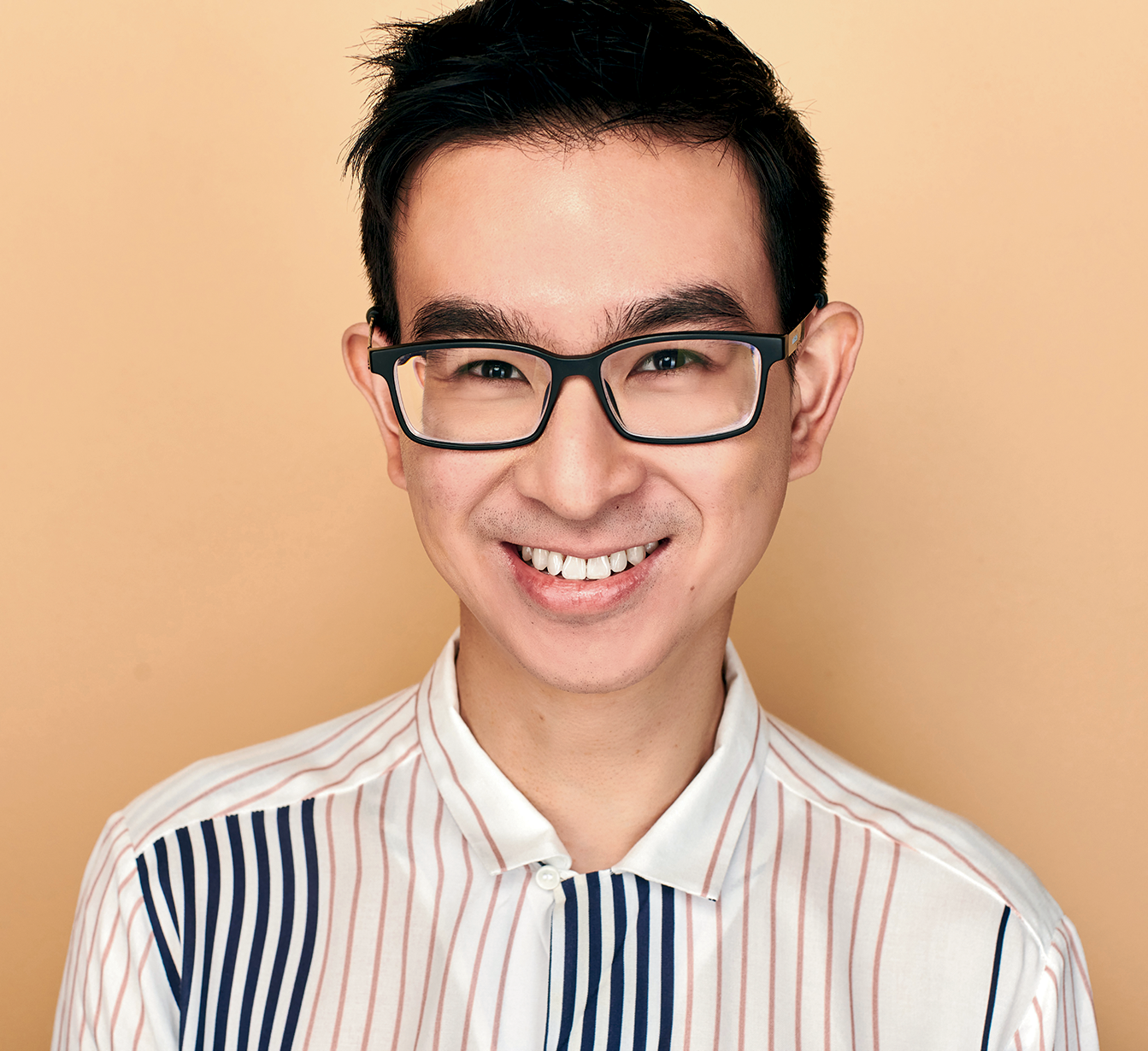
![]()
